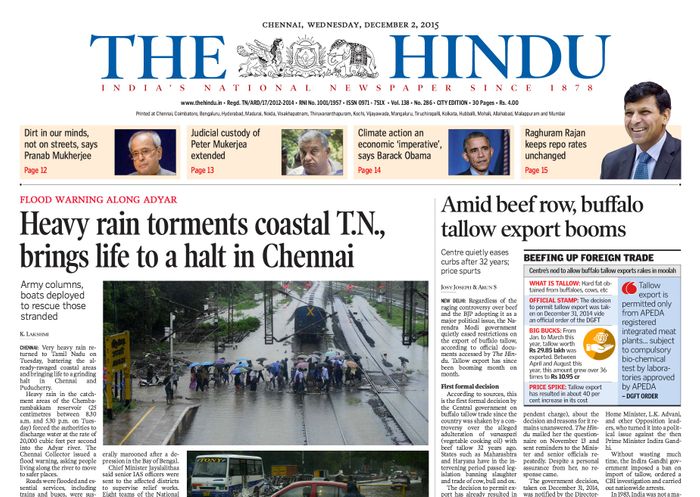
Yesterday, for the first time in 137 years of operation, while world leaders meet in Paris for COP21, The Hindu did not go to print because of heavy flooding.
Consequent to the heavy rain, print editions of The Hindu dated December 2, 2015, in Chennai, Vellore, Puducherry and Tirupati have been cancelled after taking into consideration the safety of those in the distribution network.
The Indian daily newspaper, with a circulation just above that of the New York Times, did not print yesterday’s Chennai edition, but uploaded PDFs from the issue to their website.
Link via Democracy Now